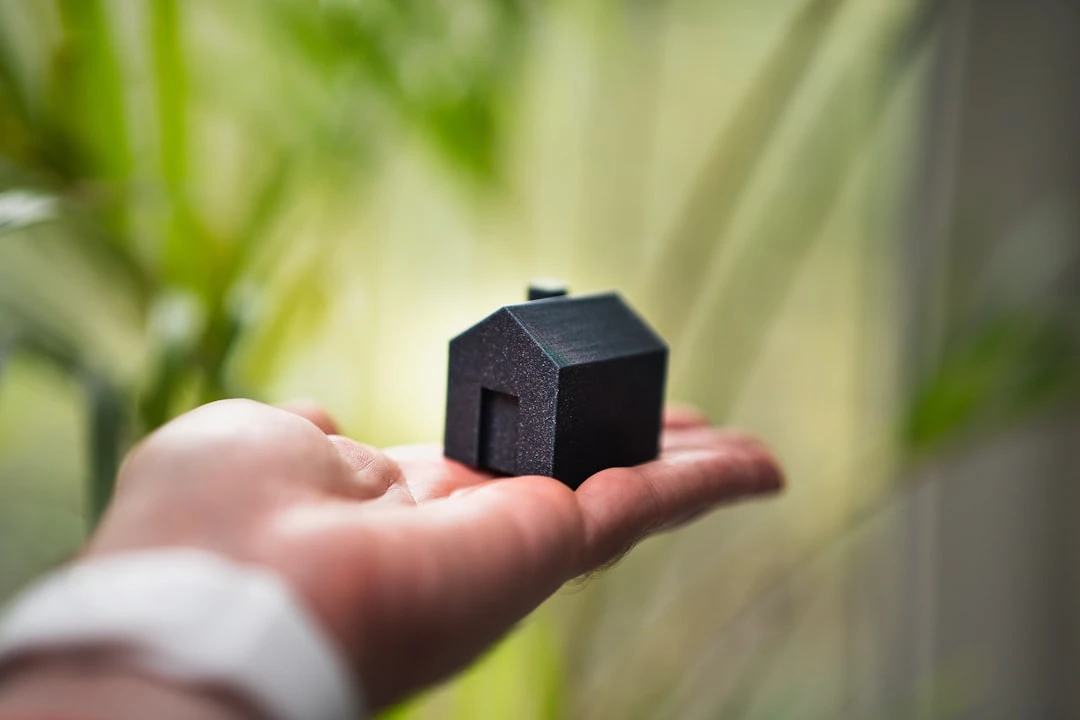Important Points to Keep in Mind Before Buying a Shared Home

Buying your own home is one of the most important financial decisions in a person's life. It is completely natural that a cohabiting couple takes out a home loan together, especially if there are children in the family. For larger living space, a larger loan amount is often needed, which is not always sufficient from one person's borrowing capacity. However, what happens to the property and the loan if life takes different paths at some point is often left undiscussed. Karin Ossipova, head of Coop Bank's home loan business line, shares advice on how to avoid disputes related to property division.
"At Coop Bank, one-third of all home loan contracts are concluded with two borrowers," notes Ossipova.
According to her, before purchasing a joint home and taking out a loan, one should think through what will happen to the property and loan in a situation where the common path no longer continues. This way, you can avoid adding financial stress and disputes over property division to an emotionally difficult separation.
Decide whether you are buying a home as spouses or as cohabitants
"Before buying a home, it is worth familiarizing yourself with the differences in property rights and responsibilities between married and unmarried cohabiting people," emphasizes Ossipova. If real estate is purchased while married, the Family Law regulates property relationships. Usually, the joint property option is chosen, which means that all property acquired during the marriage, including the home, belongs equally to both spouses.
However, an increasing number of people prefer separate property upon marriage. "Such a choice is often based on previous experiences, such as divorces or property divisions, or simply large differences in assets," explains Ossipova. In the case of separate property, property acquired during the marriage also belongs to the party in whose name it is registered, and the other spouse has no legal right to it.
Even with separate property, property can be acquired as co-ownership
With separate property, it is also possible by agreement to acquire real estate as co-ownership. In this case, ownership shares can be determined, for example, proportionally to the size of the own contribution or according to how the further loan payments have been agreed upon.
It is important to know that even with joint property, property acquired or purchased before the marriage belongs only to the one who acquired it. Similarly, only one spouse receives gifts and inheritances received during the marriage, unless the giver, testator, or property owner has specified otherwise. A home acquired together during marriage is, however, joint property.
To precisely define who owns property acquired during the marriage, a notarial marriage property agreement must be concluded. A sales contract alone, where one spouse is listed as the owner, is not sufficient. "Without a marriage property agreement, the other spouse may demand a share of the property value in the case of divorce, even if they are not registered as the owner in the land register," emphasizes Ossipova.
If you live together unmarried, conclude a cohabitation agreement
Living together as unmarried partners, family law does not apply. In the case of unmarried cohabitation, each person's property belongs to them personally, regardless of when it was acquired. To make the division of property and obligations easier in the event of separation, Ossipova recommends concluding a cohabitation agreement that specifies the distribution of property, expenses, and responsibility.
Banks do not require such an agreement, but it is useful for both parties – this way, you can avoid future misunderstandings and disputes over rights and obligations.

Share expenses equally and document payments
Regardless of whether the home is purchased while married or as unmarried cohabitants, it is wise to discuss beforehand who and to what extent will pay the home loan and other housing-related expenses. In the case of unmarried cohabitation, it is also worth discussing how the ownership relationship will develop when buying a home and in the event of a possible separation.
"Although in some families it has been agreed that one person pays the loan and another pays utilities, the safest is if both make loan payments equally and the own contribution is also equal," says Ossipova.
Since loan payments are usually made from one borrower's account, it is reasonable for the other person to transfer their share to the same account, noting in the description that it is their part of the loan payment. This makes it easier later to prove that both have participated in servicing the home loan.
"Clear documentation of payments helps avoid disputes if the question arises whether both parties have serviced the loan," adds Ossipova. If one person pays only the loan and the other covers, for example, utilities, the one paying the loan may have the right to demand compensation from the other for higher payments. With documented payments, it is later easier to prove what portion of the property actually belongs to each party.
It must be remembered that both borrowers are jointly and severally liable under the home loan contract. "This means that the obligation to repay the loan rests equally on both, even if the property is registered in only one person's name or if loan payments are made primarily by one person," explains Ossipova.
Speak openly and prevent potential problems
It is important from the beginning to understand what situation you are entering into, what risks each party has, and how to mitigate them. The best way is to discuss openly and honestly, make agreements, and document them correctly.
Ideally, the own contribution should be equal on both sides, but this is not always the case. If one person's contribution is significantly larger, this should be discussed openly and fixed with a notarial agreement to avoid future disputes.
"Often, young homebuyers are helped by their parents with the own contribution. To avoid later misunderstandings, it is reasonable to agree from the beginning whether it is a gift or a loan," recommends Ossipova.
The easiest way to divide property in the event of separation is to sell it and divide the proceeds in a previously agreed proportion. "More often, however, the property remains in the name of one party and the other receives an agreed compensation," she explains. If necessary, it is possible to take out a new home loan for this, if income allows.
Every cohabitation is based on trust, and no one wants to think about possible difficult situations. "Well-thought-out property relationships are like home insurance – hopefully you will never need them, but if problems arise, they help save both money and nerves," emphasizes Coop Bank's head of home loan business line Karin Ossipova.
Five things to think through before buying a home with a partner
1. Choose an appropriate property relationship and conclude a marriage property agreement or cohabitation agreement if necessary.
2. Document any larger contributions and investments in the home made during cohabitation.
3. Consider life changes – property division rules affect divorce, inheritance, and loan obligations.
4. Consult a lawyer or notary, especially before purchasing larger assets or concluding property agreements.
5. Be open and honest – property matters can be sensitive, but it is wiser to discuss them early to save money and nerves later.




